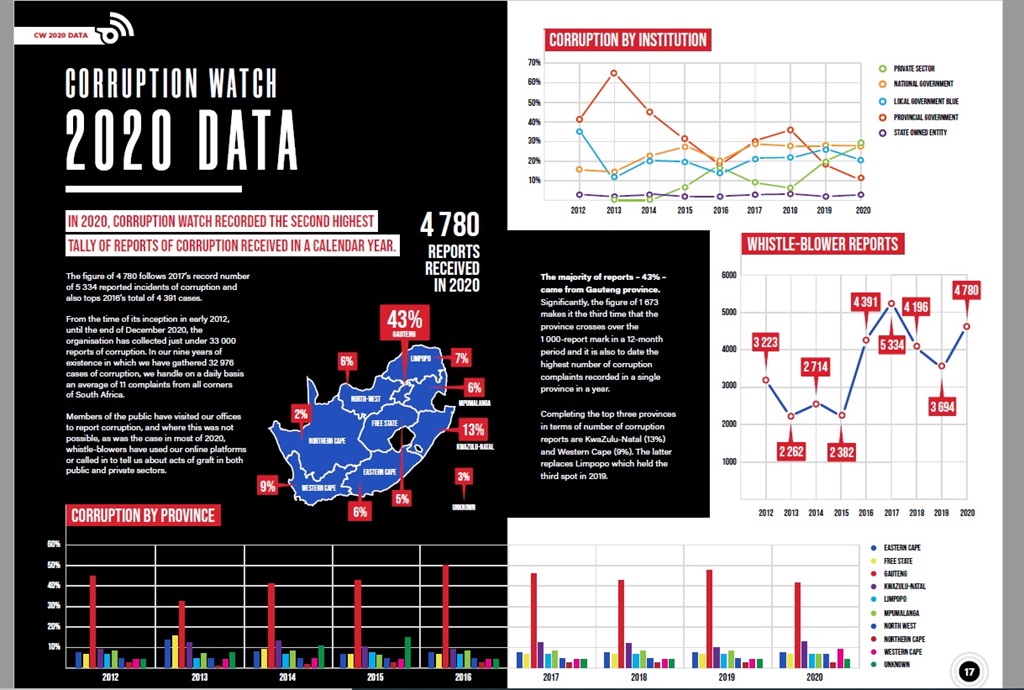
- In 2020, 4 780 incidents were reported by the public and whistleblowers to Corruption Watch.
- Of the reported cases of alleged corruption, 11% were against the police sector.
- Gauteng had the highest number of reported incidents.
The policing sector received the highest number of reports of corruption in 2020, according to Corruption Watch's annual report.
According to the organisation, it received 4 780 incidents of corruption from the public and whistleblowers in 2020, which is the second-highest number since its inception in 2012.
Police accounted for 11% of the corruption reports, followed by corruption in schools at 6%, and health 4%.
"The continued prominence of SAPS-related corruption reports can be attributed not only to the policing environment, in the context of the Covid-19 national state of disaster and lockdown regulations, but also to the Corruption Watch project that has, for several years, highlighted police abuse and mismanagement.
"Over the course of 2020, Corruption Watch received almost double the number of police-related reports compared to 2019 – over 440 against some 250," the organisation said.
The most frequently reported forms of corruption during 2020 were maladministration (17%), procurement corruption (16%) and fraud (15%).
"During this period, the public was increasingly outraged by the rampant corruption that emerged in relation to procurement and distribution of essential goods and services, including relief packages, necessitated by Covid-19. Along with these deplorable acts during a time of emergency, equally shocking were the cases of police and army brutality and abuse of power," said Corruption Watch.
Gauteng recorded the highest number of cases, with 48%, KwaZulu-Natal 12%, and Eastern Cape and Western Cape, with 7% each.
"While it's pleasing to report that most of Corruption Watch's key campaigns have continued throughout the lockdown periods and the volume of reports received by us have increased, it is with anger and sadness that we also have to report that the corrupt took advantage of the public health crisis to loot the procurement necessitated by Covid, and even stooped as low as to steal from the various relief programmes," said David Lewis, executive director of Corruption Watch.

